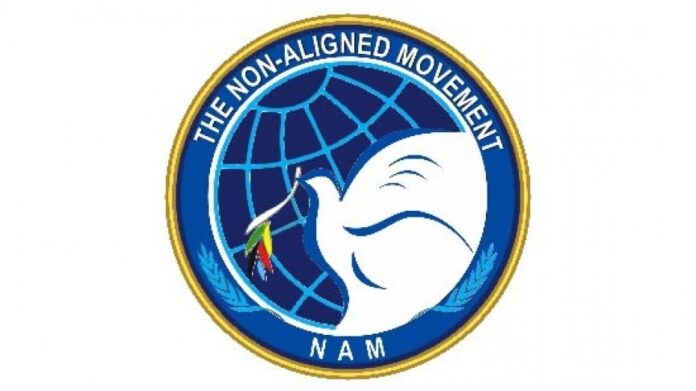By Dr. Vahagn Vardanyan
Out of 193 United Nations member-states, only a few are members of one or another military-political alliance (for example, NATO or the Russia-led Collective Security Treaty Organization [CSTO]). In the 1960s, many countries which decided not to join any such alliance formed the Non-Aligned Movement (then mainly directed against NATO and the Warsaw Pact). After the USSR and the Warsaw Pact Organization ceased, the Movement continued to exist and today, 120 countries are members. Seven more (including Armenia) have observer status. The Movement’s governance principles are defined by the Cartagena Methodological Document adopted in 1996. To join the Movement, a country must accept and adhere to the requirements in Paragraph 3 of the above document, known as the “Ten Bandung Principles.”
The highest governing body of the Non-Aligned Movement is the Summit of heads of states or governments of member states. At the Summit, one of the leaders of the member-states is elected as the president of the Movement before the next Summit is held. Azerbaijan is a member of the movement, and currently, its leader, Ilham Aliyev, is its president from 2019 until 2023 (extended in 2022 because of the global situation with COVID-19). Now let’s look at the ten foundational principles of the Movement and the cases of violation of each of these principles by Aliyev’s Azerbaijan.
Principle I: Respect for fundamental human rights and the purposes and the principles of the Charter of the United Nations
Violation of the principle: There are many facts about the inhumane treatment of prisoners of war and captured civilians. Such are, for example, the shooting of two captured Armenian residents in the town of Hadrut in Artsakh (Nagorno-Karabakh) during the 44-day War of 2020 and the fact that it remained without consequences. The opening of a war park in Azerbaijan’s capital city of Baku, which demonstrates the humiliation of the Armenian side, is among many other facts raised by the Republic of Armenia’s Human Rights Defender’s Office.
Principle II: Respect for the sovereignty and territorial integrity of all nations










